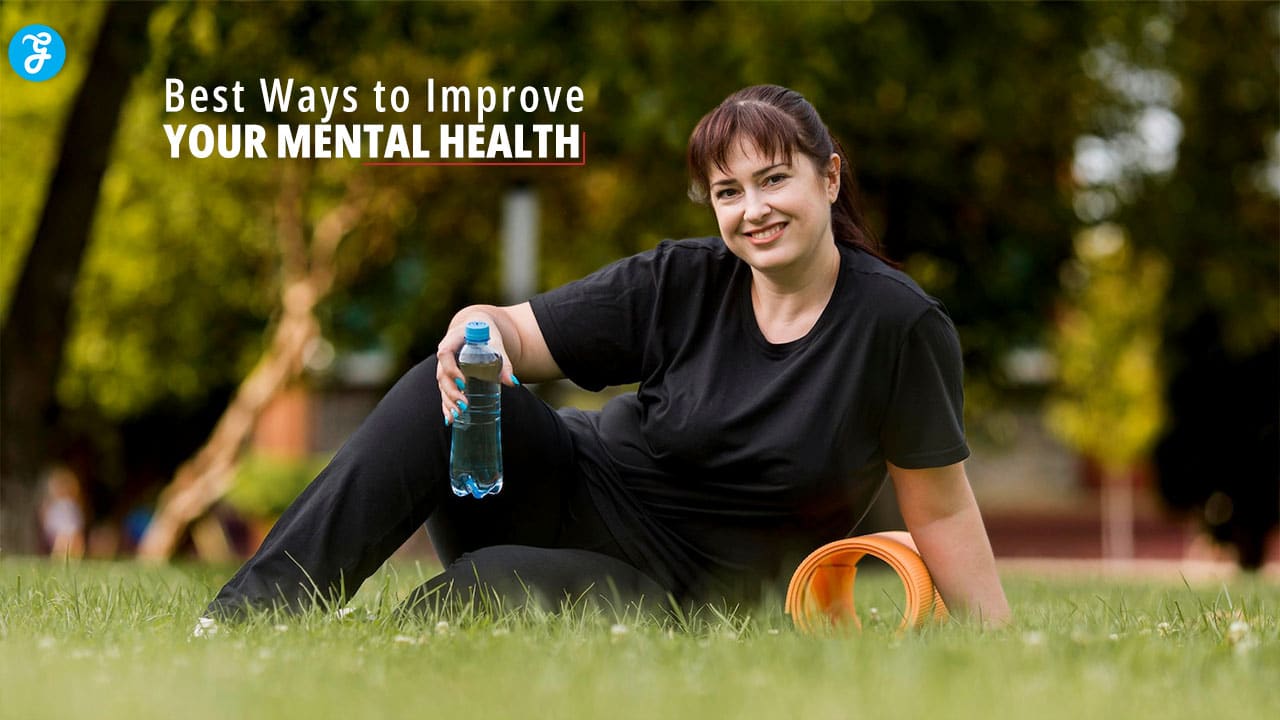In an era where the pace of life seems to accelerate daily, the importance of mental health has never been more pronounced. The World Health Organization reports that mental health conditions now affect one in eight people globally, highlighting an urgent need for effective strategies to nurture our psychological well-being. This isn’t just about avoiding mental illness; it’s about thriving, realizing our full potential, and finding genuine happiness in our daily lives.
Recent neuroscientific research has revolutionized our understanding of mental health. We now know that the brain is remarkably plastic, capable of forming new neural connections throughout our lives. This neuroplasticity means that with the right tools and practices, we can actively shape our mental landscape, fostering resilience, emotional balance, and a positive outlook. This article will explore ten effective ways to boost your mental well-being and cultivate lasting happiness.
Ways to Improve Your Mental Health
Maintaining good mental health is just as important as taking care of your physical well-being, yet it’s often overlooked in our busy lives. Improving your mental health involves a combination of practices that nurture your mind, body, and spirit. From engaging in regular physical activity and practicing mindfulness to building strong social connections and seeking professional support when needed, there are numerous ways to boost your mental well-being. Here’s 10 best practical steps you can take to enhance your mental health, helping you to lead a more balanced, fulfilling, and resilient life.
1. Practice Mindfulness and Meditation
Mindfulness and meditation are powerful tools for reducing stress and anxiety. By focusing on the present moment, you can quiet the mind and gain perspective. Start with just 5-10 minutes daily, finding a quiet space to sit and focus on your breath. When your mind wanders, gently bring your attention back to your breathing. Consistency is key – regular practice can lead to significant improvements in mental well-being.
2. Exercise Regularly
Physical activity is a natural mood booster and stress reliever. Aim for at least 30 minutes of moderate exercise most days of the week. The key is finding activities you enjoy, whether it’s walking, cycling, dancing, or playing sports. Regular exercise releases endorphins, improves sleep quality, and enhances overall physical health, all of which contribute to better mental health.
3. Prioritize Sleep
Quality sleep is crucial for mental health and emotional resilience. Aim for 7-9 hours of sleep each night by establishing a consistent sleep schedule. Create a relaxing bedtime routine and ensure your sleeping environment is conducive to rest – cool, dark, and quiet. Limit screen time before bed and avoid caffeine in the evening to improve sleep quality.
4. Nurture Social Connections
Strong social connections are vital for happiness and mental well-being. Make an effort to maintain and deepen relationships with family and friends. Regular check-ins, whether in person or via phone/video calls, can significantly impact your mood and sense of belonging. Don’t hesitate to reach out and connect with others, join clubs, or volunteer to expand your social circle.
5. Practice Gratitude
Cultivating gratitude can shift your focus from what’s lacking to what’s abundant in your life. Take time each day to acknowledge the good things, no matter how small. Consider keeping a gratitude journal where you write down three things you’re thankful for daily. This practice can increase positivity, life satisfaction, and overall happiness.
6. Set and Pursue Realistic Goals
Having a sense of purpose and achievement is important for mental well-being. Set realistic, attainable goals and break them down into smaller tasks. This approach provides direction and motivation while allowing you to celebrate small wins along the way. Remember to be flexible and adjust your goals as needed, focusing on progress rather than perfection.
7. Engage in Enjoyable Activities
Making time for activities you enjoy is crucial for maintaining good mental health. Hobbies and leisure activities provide a sense of accomplishment, relaxation, and joy. Whether it’s reading, gardening, cooking, or creating art, regular engagement in enjoyable activities can reduce stress and increase overall life satisfaction.
8. Practice Self-Compassion
Being kind to yourself is as important as being kind to others. Practice self-compassion by treating yourself with the same understanding and forgiveness you’d offer a friend. Acknowledge that everyone makes mistakes and faces challenges. Use positive self-talk and give yourself permission to take breaks when needed without guilt.
9. Limit Digital Consumption
While staying informed is important, excessive consumption of news and social media can negatively impact mental health. Set boundaries around your digital usage, such as designated times for checking news and social media. Create tech-free zones or hours in your home to encourage more present-focused activities and real-world interactions.
10. Seek Professional Help When Needed
Sometimes, despite our best efforts, we need additional support. Seeking help from a mental health professional is a sign of strength, not weakness. Therapists and counselors can provide valuable tools and strategies for managing mental health challenges. If you’re experiencing persistent low mood, anxiety, or other mental health concerns, don’t hesitate to reach out to a professional.
Takeaway
As we conclude this exploration of mental health strategies, it’s crucial to recognize that the journey to improved mental well-being is both deeply personal and universally relevant. The global burden of mental health conditions is staggering – the World Health Organization estimates that depression alone affects 280 million people worldwide. Yet, armed with the right tools and knowledge, each of us has the power to significantly enhance our mental health and overall quality of life.





































